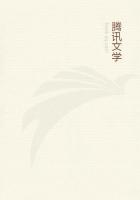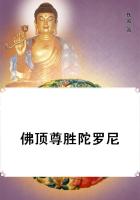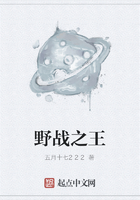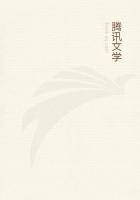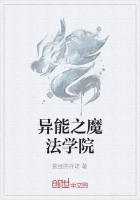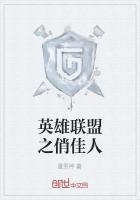Why, in all fairness, were the Puritans wrong in condemning that which we now have absolutely forbidden?
We will go no further into the details of the licentiousness of the old play-houses. Gosson and his colleague the anonymous Penitent assert them, as does Prynne, to have been not only schools but antechambers to houses of a worse kind, and that the lessons learned in the pit were only not practised also in the pit. What reason have we to doubt it, who know that till Mr. Macready commenced a practical reformation of this abuse, for which his name will be ever respected, our own comparatively purified stage was just the same? Let any one who remembers the saloons of Drury Lane and Covent Garden thirty years ago judge for himself what the accessories of the Globe or the Fortune must have been, in days when players were allowed to talk inside as freely as the public behaved outside.
Not that the poets or the players had any conscious intention of demoralising their hearers, any more than they had of correcting them. We will lay on them the blame of no special malus animus: but, at the same time, we must treat their fine words about 'holding a mirror up to vice,' and 'showing the age its own deformity,' as mere cant, which the men themselves must have spoken tongue in cheek.
It was as much an insincere cant in those days as it was when, two generations later, Jeremy Collier exposed its falsehood in the mouth of Congreve. If the poets had really intended to show vice its own deformity, they would have represented it (as Shakspeare always does) as punished, and not as triumphant. It is ridiculous to talk of moral purpose in works in which there is no moral justice. The only condition which can excuse the representation of evil is omitted.
The simple fact is that the poets wanted to draw a house; that this could most easily be done by the coarsest and most violent means; and that not being often able to find stories exciting enough in the past records of sober English society, they went to Italy and Spain for the violent passions and wild crimes of southern temperaments, excited, and yet left lawless, by a superstition believed in enough to darken and brutalise, but not enough to control, its victims.
Those were the countries which just then furnished that strange mixture of inward savagery with outward civilisation, which is the immoral playwright's fittest material; because, while the inward savagery moves the passions of the audience, the outward civilisation brings the character near enough to them to give them a likeness of themselves in their worst moments, such as no 'Mystery of Cain' or 'Tragedy of Prometheus' can give.
Does this seem too severe in the eyes of those who value the drama for its lessons in human nature? On that special point something must be said hereafter. Meanwhile, hear one of the sixteenth century poets; one who cannot be suspected of any leaning toward Puritanism; one who had as high notions of his vocation as any man; and one who so far fulfilled those notions as to become a dramatist inferior only to Shakspeare. Let Ben Jonson himself speak, and in his preface to 'Volpone' tell us in his own noble prose what he thought of the average morality of his contemporary playwrights:-
'For if men will impartially and not asquint look toward the offices and functions of a poet, they will easily conclude to themselves the impossibility of any man's being a good poet without first being a good man. He that is said to be able to inform young men to all good discipline, inflame grown men to all great virtues, keep old men in their best and supreme state, or, as they decline to childhood, recover them to their first strength; that comes forth the interpreter and arbiter of nature, a teacher of things divine no less than human, a master in manners and can alone (or with a few) effect the business of mankind; this, I take him, is no subject for pride and ignorance to exercise their railing rhetoric upon. But it will here be hastily answered that the writers of these days are other things, that not only their manners but their natures are inverted, and nothing remaining of them of the dignity of poet but the abused name, which every scribe usurps; that now, especially in dramatick, or (as they term it) stage poetry, nothing but ribaldry, profanation, blasphemies, all licence of offence toward God and man is practised.
I dare not deny a great part of this (and I am sorry I dare not), because in some men's abortive features (and would God they had never seen the light!) it is over true; but that all are bound on his bold adventure for hell, is a most uncharitable thought, and uttered, a more malicious slander. For every particular I can (and from a most clear conscience) affirm that I have ever trembled to think toward the least profaneness, and have loathed the use of such foul and unwashed . . . [his expression is too strong for quotation] as is now made the food of the scene.'
It is a pity to curtail this splendid passage, both for its lofty ideal of poetry, and for its corroboration of the Puritan complaints against the stage; but a few lines on a still stronger sentence occurs:-
'The increase of which lust in liberty, together with the present trade of the stage, in all their masculine interludes, what liberal soul doth not abhor? Where nothing but filth of the mire is uttered, and that with such impropriety of phrase, such plenty of solecisms, such dearth of sense, so bold prolepses, such racked metaphors, with (indecency) able to violate the ear of a Pagan, and blasphemy to turn the blood of a Christian to water.'
So speaks Ben Jonson in 1605, not finding, it seems, play-writing a peaceful trade, or play-poets and play-hearers improving company.
After him we should say no further testimony on this unpleasant matter ought to be necessary. He may have been morose, fanatical, exaggerative; but his bitter words suggest at least this dilemma.


